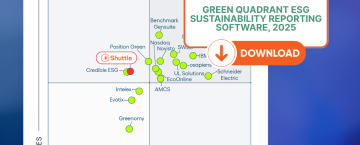Frédéric Encel at kShuttle Connect: Why Businesses Must Integrate Geopolitics into Their Strategy
Geopolitics: A Strategic Imperative for Businesses
At the first edition of kShuttle Connect, Frédéric Encel – PhD in geopolitics, professor at Sciences Po Paris, and author of several landmark publications – offered a compelling take on geopolitics and its growing role in corporate strategy.
In a world marked by tension, fragmentation and instability, geopolitics is no longer a concern reserved for diplomats or military advisors. It now takes a seat at the table in boardrooms, investment committees and corporate resilience plans.
“There is now a growing demand for geopolitics in business, and this is a relatively recent shift. Twenty years ago, no one was talking about it. Today, it’s become essential.”
#1. From a marginal discipline to a multidimensional one
For a long time, geopolitics remained confined to academic and diplomatic circles. But as Encel notes, over the past decade: “Investment funds and large groups have started hiring full-time people who are expected to act as prophets—people asked to predict what’s coming.”
We are now seeing a clear integration of geopolitical expertise into business environments, particularly within investment groups and multinational companies.
As a result, new roles have emerged: geopolitical risk analysts, foresight units, and in-house strategy consultants.
Why? Because companies today must navigate a fragmented, unpredictable, and interconnected world.
#2. From risk analysis to strategic resilience
To face this increasing complexity, some companies are choosing to internalise this capability.
“I now intervene more in the corporate world than in the military or diplomatic spheres,” says Encel.
And he adds: “Geopolitics draws on history, geography, law, military strategy, and of course, economics. It helps make sense of a world where butterfly effects are increasingly frequent.”
Globalisation has exposed companies to complex risks: from oil price volatility and US–China trade tensions, to extraterritorial regulations, sanctions, and political instability in strategic regions.
#3. A lens to understand a fragmented world
Events such as the 2008 financial crisis, the Eurozone sovereign debt crisis, Trump-era protectionism, China’s growing assertiveness, and conflicts in Ukraine and the Middle East all illustrate a fragmented, unpredictable world.
In this environment, companies must go beyond analysing economic trends: they must also factor in political, military, social and cultural dynamics.
Geopolitical risk has become a key driver of investment decisions, location strategies and supply chain management.
#4. Bringing geopolitical expertise in-house
Some companies are now building this expertise internally: “I regularly work with groups that have created strategist roles in-house. These are hybrid profiles, often from the military or research fields, tasked with anticipating future scenarios.”
This paradigm shift is also driven by the acceleration of time: decisions must be made on increasingly short timeframes, while accounting for long-term geopolitical shifts.
#5. Europe, regulation, and economic sovereignty
Geopolitics also concerns standards—and the power to impose them. Encel underlines the strategic role that the European Union can play: “Europe is a normative power. But it’s not enough to set standards for baby nappies. We also need political and military power.”
European regulations, such as the CSRD or extraterritorial tax frameworks, can act as levers of sovereignty. When used strategically, they reflect a political ambition that could restore Europe’s global economic influence.
#6. Fewer conflicts, but greater complexity
Pushing back against alarmist rhetoric, Encel provides a key nuance: “There are fewer armed conflicts today than in previous centuries.”
But this doesn’t mean the world is more stable.
“What’s changed is the timeline. Businesses now want to know what will happen not in 20 years, but in 20 days.”
The challenge? Dealing with a multipolar world where butterfly effects are constant. A skirmish at India’s border, a political move in Africa, or a candidate’s statement in the US can impact a supply chain in western France. That demands a level of agility that was unnecessary in the past.
#7. The call to action: understanding as a path to action
In today’s volatile world, inaction can be riskier than action. Encel concludes with a powerful reminder: “Pessimism has no analytical value. The truth lies in action.”
Rather than suffer through the geopolitical landscape, companies must integrate it into their strategy – turning complexity into a lever for resilience, anticipation, and competitiveness.
Final word
Geopolitics has become an essential framework for understanding the future of business. Whether it’s about investment strategy, risk management, or extra-financial performance, integrating this dimension is already a step toward stronger, smarter decision-making.
🎥 Watch Frédéric Encel’s full talk on our YouTube channel.
📊 And to go further: explore ExRP, our platform turning regulatory reporting into a strategic asset.


